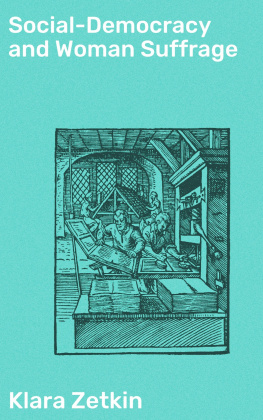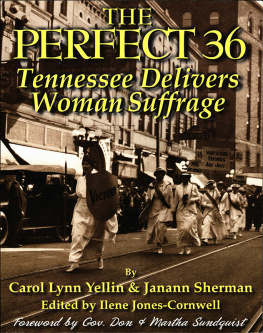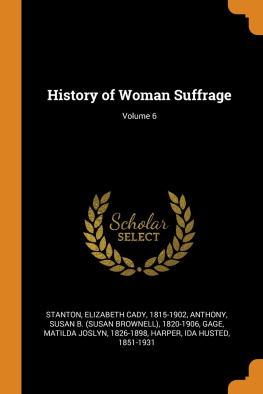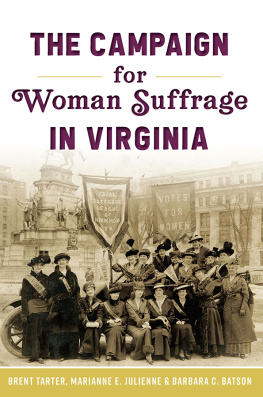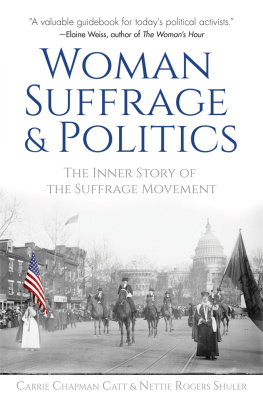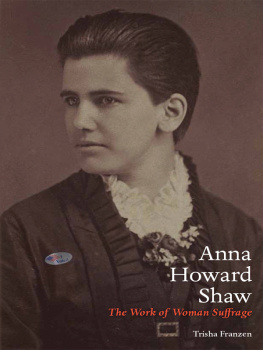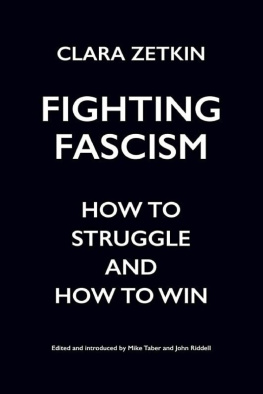Social-Democracy & Woman Suffrage.
A PAPER READ BY
CLARA ZETKIN
To the Conference of Women belonging to the Social-Democratic Party held at Mannheim, before the opening of the Annual Congress of the German Social-Democracy.
Comrades,The decision to discuss the question of Woman Suffrage at this Congress was not arrived at from any theoretical considerations, or from any wish to point out the advisability of such a measure. This desirability has long been acknowledged by Social-Democrats, and by the women who work with them for the attainment of their aims. We have been much more interested in the tactics and in the historical events about which I am now going to speak. There never was greater urgency than at the present time for making the question of Woman Suffrage one of the chief demands of our practical programme in politics. It is well for us, therefore, to be clear that we are on the right lines, and in what conditions and in what ways we should conduct the agitation, the action, the struggle for Woman Suffrage so as to bring it before the public as a question of intense practical activity for all. But we should not be what we are, we should not be working-class women agitators who base their demands on the ground of a Socialist demand, if we did not, when seeking on the right lines, with all our strength, for this right, at the same time show why we base our claim for this reform, and how we are totally separated from those who only agitate for this from the point of view of middle-class women. We take our stand from the point of view that the demand for Woman Suffrage is in the first place a direct consequence of the capitalist method of production. It may seem perhaps to others somewhat unessential to say this so strongly, but not so to us, because the middle-class demand for womens rights up to the present time still bases its claims on the old nationalistic doctrines of the conception of rights. The middle-class womens agitation movement still demands Woman Suffrage to-day as a natural right, just as did the speculative philosophers in the eighteenth and nineteenth centuries. We, on the contrary, basing our demand on the teachings of economics and of history, advocate the suffrage for women as a social right, which is not based on any natural right, but which rests on social, transient conditions. Certainly in the camp of the Suffragettes it is also understood that the revolution which the capitalist method of production has caused in the position of women, has been of great importance in causing many to agitate for their rights. But this is not given as the most important reason, the tendency is to put this in the background, and, as an illustration of this, I would refer, for example, to the declaration of principles which the middle-class international association for the attainment of Woman Suffrage formulated at its first Congress in Berlin, in June, 1904, when the constitution of the society was drawn up. In this declaration of principles there are stated firstly, secondly, and thirdly, considerations from a purely natural-right point of view, which were inspired from a sentimentalist standpoint due to idealistic considerations, and it will need other grounds of action, other considerations, other ideals if the masses are ever to be reached. It was only when they came to the fourth clause, after talking about the economic revolution of society, that they began to think about the industrial activity of women. But in what connection? There it was stated that Woman Suffrage is required, owing to the increase of wealth, which has been attained by the labours of women. Comrades, I declare that the strongest and greatest demand for womens rights is not due to the increase of wealth among women, but that it is based on the poverty, on the need, on the misery of the great mass of women. We must reject with all our might this middle-class agitation of women, which is only a renewed idle prattling about national wealth. If you simply argue from the point of view of natural rights, then we should be justified in adapting the words which Shakespeare puts into the mouth of Shylock. We might say, Hath not a woman eyes? Hath not a woman hands, organs, dimensions, senses, affections, passions, fed with the same food, hurt with the same weapons, subject to the same diseases, healed by the same means, warmed and cooled by the same winter and summer as a man is? If you prick us, do we not bleed? If you tickle us, do we not laugh? If you poison us, do we not die? But, comrades, though these questions might be of momentary use, yet in the struggle for social rights they are like a weapon which breaks as soon as it is used in fighting.
The right to Woman Suffrage is based for us in the variation of social life which has come about through the capitalist methods of production, and more especially through the fact of women working for their living, and in the greatest degree through the enrolment of working women in the army of industry. This has given the greatest impetus to the movement. I agree that there are facts which appear to go against this movement. It is a fact that the agitation for Woman Suffrage, though in a weakened form, already existed in many countries before capitalist production had become more important than anything else, before it had reached its highest point, and had been able to attain its greatest development owing to the exploitation of womens labour. In Russia, in the village communes, women were able to take an equal share with men, in certain cases, in the government of the communes. This is an old custom, which has been duly recognised by Russian law. But this right is due to the fact that in Russia the old customs of the rights of mothers have lasted for a longer time than in the West of Europe, and that there women enjoy this right not as persons or as individuals, but as guardians of the household, and of the common property which has lasted longer there. In many other States, as well as in many provinces, of Prussia, there is still a species of woman suffrage. In the seven eastern provinces, as well as in Westphalia and Schleswig-Holstein, the women in the country districts have votes for the local bodies. But under what conditions? Not every woman has the right of voting, but it is restricted to those who own land and pay taxes. The same rule obtains not only in the country but also in the towns, in part of the Palatinate, and in other places. In Austria, too, the women in the country districts have the right of voting for the members of the local district authorities, but only in so far as they are owners of land and inasmuch as they are taxpayers, and it is thought that they will soon be able to vote for the election of members of the local diets and of the Reichsrath. And the consequence is that, in many Crown lands of Austria there are women who are indirectly electors for the Reichsrath, because they are allowed to vote for the delegates who choose the representatives for that body. In Sweden women who fulfil the same conditions of property are also allowed to vote in the elections for local bodies. But when we carefully consider all these cases, we find that women do not vote because they are women; they do not enjoy, so to speak, a personal vote, but they only have this right because they are owners of property and taxpayers. That is not the kind of Woman Suffrage which we demand; it is not the right we desire to give a woman, as a burgess of the State, it is only a privilege of property. In reality, all these and similar schemes stand out in marked contrast to the demand for Woman Suffrage which we advocate. In England we find, too, that women may take part in elections for local bodies; but this again is only under conditions of owning a certain amount of property or paying a certain sum in taxes.

